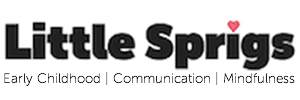
“As parents, the important question to ask is, not HOW do I get compliance, but rather WHAT does my child need in this moment and how can I help them to meet this need.”Alfie Kohn
Mr. Kohn reminds us that by simply reframing the questions you ask yourself, you can create a profound shift in the results you are getting. Why just react when I can create an opportunity for connection with my child?
As human beings, we spend nearly every moment of the day just trying to get our needs met. I have an itch. I want someone to scratch it. I feel sad. I want a hug. I feel excited. I want to connect with someone. I feel dismissed. I want acceptance.

As adults we have developed more sophisticated ways of getting our needs met. Make no mistake when we were little we had the same goals as we do now but for many of us we’ve forgotten what it is like to be a child. Sometimes as adults we feel tired, busy, frustrated. When this is happening it is so easy for us to react to a child in need rather than to respond. Even in a moment of calm, our child’s need for play can feel threatening to our need for peace and relaxation and cause us to react. So lets ask ourselves:
What is the difference between reacting and responding?
We know what it feels like when we simply react. When it happens in our adult relationships we often find ourselves apologizing for it later. I’m sorry, I was feeling out of sorts earlier..or I really did not mean to speak to you that way, I’m sorry…
But when we react to our children’s behavior, for not doing what we have asked of them repeatedly for example, we might feel entitled to our reaction and even blame our reaction on the child. Why do we react? Reaction is instinctual. We evolved to react to threats in nature as a life saving tool. Though sometimes necessary, it is not always appropriate.
So in the heat of the moment with your child, in a moment of conflict, how do we move from reacting to seeing an opportunity of connection with your child? Respond! Responding is a conscious action. The cry, the resistance, or the tantrum is simply your child’s way of saying, “I have a deep need here for something and I am trying to get it met with your help.” The action you decide to take, is developing the type of long term relationship you will have with your child.
All the best,
Christina
Share this Post
